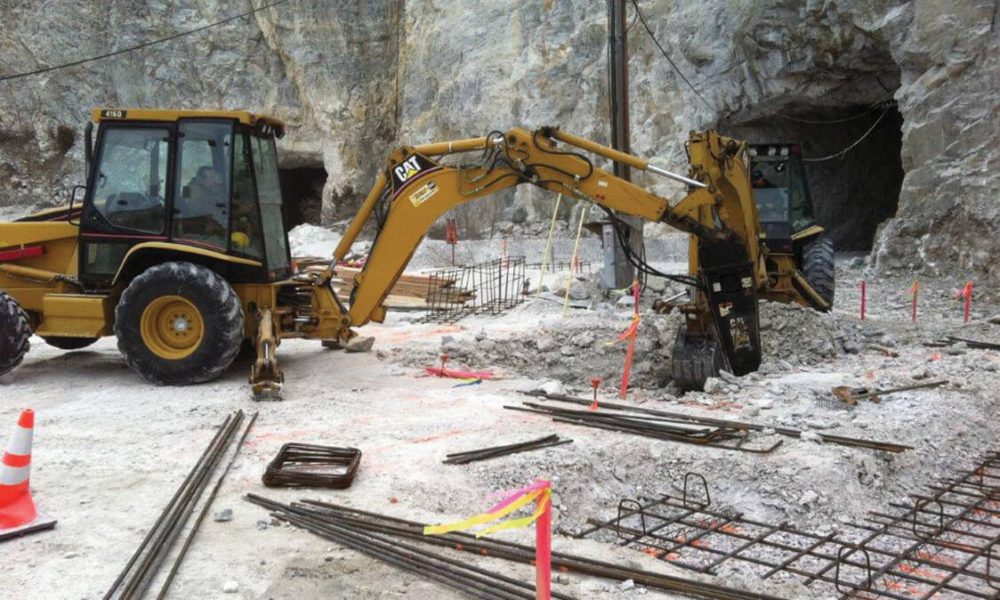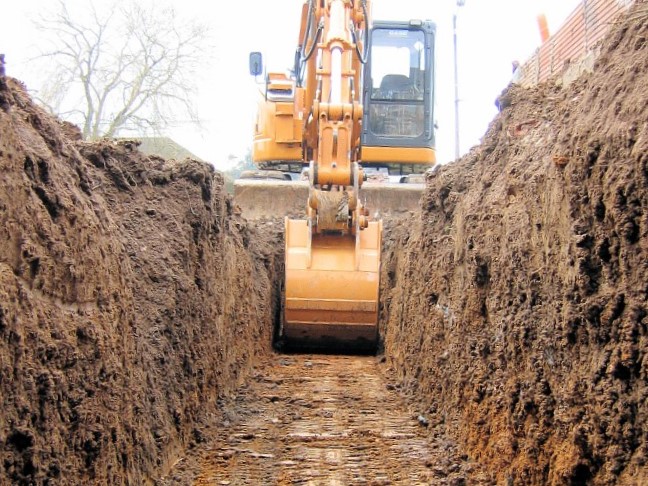Lancaster Excavation - Expert Excavation Services in Lancaster, OH
Lancaster Excavation - Expert Excavation Services in Lancaster, OH
Blog Article
Comprehensive Excavation Techniques: Understanding the Basics for Success
In the realm of building and construction and civil engineering, the importance of reliable excavation strategies can not be overstated. The mindful preparation, accurate implementation, and thorough attention to detail needed in excavation tasks demand a detailed strategy that encompasses various essential facets. From preliminary dirt evaluation to the execution of precaution and regular development tracking, grasping these core aspects is crucial for achieving success in any kind of excavation venture. The true mastery lies not simply in comprehending these basics however in effortlessly integrating them to browse the intricacies of excavation projects with finesse.
Recognizing Excavation Task Planning

The preliminary phase of any excavation task is the preparation phase, where critical choices are made that can considerably affect the end result of the task. Understanding the task spending plan, extent, and timeline restraints is crucial for creating a comprehensive excavation plan that makes certain the task's success.
One key facet of excavation job preparation is the advancement of a detailed timeline that lays out the sequence of due dates, activities, and turning points. By thoroughly considering all these variables during the planning phase, excavation projects can be implemented efficiently and properly, leading to successful outcomes - lancaster trenching.
Soil Evaluation and Site Analysis
Performing extensive dirt analysis and website assessment is a vital action in the prep work phase of any type of excavation task. Dirt analysis includes figuring out the composition, structure, and homes of the soil at the excavation website. This details is critical for recognizing the dirt's bearing capacity, wetness web content, and possibility for disintegration, which are key elements in figuring out the excavation approaches and tools required for the task.
Website evaluation surpasses soil evaluation and incorporates a more comprehensive assessment of the overall site problems. This evaluation includes identifying any possible threats, such as below ground energies, ecological problems, or unpredictable surface, that can affect the excavation procedure. By completely reviewing the website, task supervisors can establish efficient excavation techniques that prioritize safety, performance, and environmental management.
Using advanced technologies like ground-penetrating radar, dirt tasting, and drone surveys can enhance the precision and performance of dirt analysis and website analysis. Spending time and resources in these preliminary actions can ultimately conserve time and protect against expensive hold-ups or problems during the excavation procedure.
Tools Option and Usage
Efficient excavation projects count greatly on calculated devices option and usage to make sure ideal performance and performance. Picking the ideal equipment for the task is vital in maximizing performance and reducing downtime. Elements such as the sort of soil, deepness of excavation, and project range play a significant duty in identifying one of the most suitable equipment for the job at hand.

Along with choosing the ideal equipment, appropriate utilization is key to job success. Operators has to be trained to handle the equipment safely and effectively - excavating ohio. Routine maintenance checks and timely repairs help avoid break downs and guarantee consistent performance throughout the task
Safety And Security Measures and Regulations Conformity
In the world of excavation tasks, focusing on precaution and compliance with policies is extremely important to making sure a safe and lawfully sound operational setting. Precaution encompass a range of techniques, including conducting extensive site analyses, carrying out appropriate signs and barriers, and providing ample security training for all personnel associated with the excavation process. Adherence to regulations, such visit this site right here as OSHA needs in the United States, ensures that the excavation task meets the essential requirements to safeguard employees, onlookers, and the surrounding environment.

Monitoring Progression and Adjusting Approaches
Just how can forecast managers effectively track the innovation of excavation projects and adjust their techniques accordingly to enhance end results? Tracking progression is crucial for ensuring that excavation tasks stay on read what he said track and fulfill target dates.

Final Thought
To conclude, mastering the principles of detailed excavation techniques is necessary for the success of any kind of job. By understanding job planning, assessing dirt and site problems, choosing appropriate devices, following security policies, and monitoring development, project supervisors can make sure a smooth and effective excavation procedure. Executing these strategies will lead to successful outcomes and minimize go now prospective risks or obstacles during the excavation job.
The first phase of any type of excavation task is the planning phase, where crucial choices are made that can considerably influence the outcome of the job. Recognizing the project budget, timeline, and scope restrictions is critical for creating a detailed excavation strategy that ensures the project's success.
Exactly how can predict supervisors effectively track the improvement of excavation tasks and adapt their methods as necessary to maximize outcomes? By closely checking progress and being willing to adapt techniques, job supervisors can boost the total success of excavation projects.
By understanding job preparation, assessing dirt and website problems, picking appropriate devices, abiding with security laws, and keeping track of progression, task managers can guarantee a effective and smooth excavation procedure.
Report this page